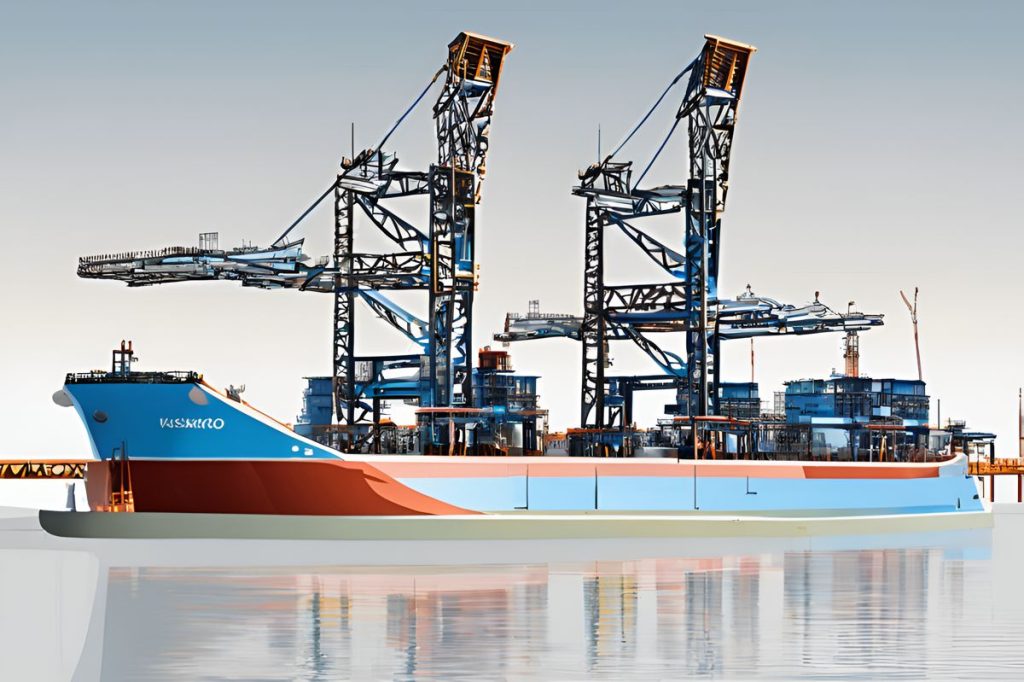The Vasiliko LNG terminal in Cyprus aims to boost the nation’s energy independence by facilitating LNG regasification, paving the way for cleaner and potentially more affordable electricity production while aligning with environmental objectives. Recognized as a vital project within the European context, it has encountered setbacks but is back on track, backed by a significant EU grant, indicating a strategic shift towards sustainable energy sources and economic stability for Cyprus.
What is the purpose of the Vasiliko LNG terminal in Cyprus?
The Vasiliko LNG terminal is designed to enhance Cyprus’s energy independence by enabling regasification of LNG, leading to cleaner, potentially less expensive electricity production, and aligning with environmental goals. It’s a key project for reducing electricity costs and contributing to the regional energy supply and geopolitical dynamics.
Enhancing Cyprus’s Energy Infrastructure
Cyprus is on the move to enhance its energy independence and sustainability. The government has set an ambitious target to finalize the construction of the Vasiliko Liquified Natural Gas (LNG) terminal by the end of 2024. George Papanastasiou, the Energy Minister, recently conveyed the nation’s commitment to this project, emphasizing its importance in the European context as well. The LNG terminal project is considered pivotal for reducing the cost of electricity generation on the island.
Despite encountering obstacles earlier this year—when construction was temporarily put on hold due to legal actions by the Chinese-led consortium CPP Metron—the project is back on track. Resumption was possible following productive discussions between the consortium and Papanastasiou. The LNG terminal project is notably recognized as one of the EU Projects of Common Interest (PCI), highlighting its significance beyond national borders and securing a €101 million grant to support its completion.
Strategic Energy Shifts
The introduction of LNG to Cyprus’s energy mix is a strategic move, anticipated to prompt a significant drop in the cost of producing electricity. Currently, conventional methods dominate Cyprus’s electricity generation, but the new terminal will enable regasification of LNG, steering the country towards cleaner and potentially less expensive energy production.
Natural gas is poised to play a crucial role in the island’s energy transition, and the Vasiliko terminal is a central piece of this puzzle. Beyond economic implications, this shift also serves to align Cyprus with broader environmental goals, reducing reliance on more polluting energy sources.
Offshore Explorations and Future Prospects
The Cypriot waters hold further promise for the nation’s energy strategy, particularly with the Cronos gas field. Situated in block six of Cyprus’s Exclusive Economic Zone (EEZ), Cronos is estimated to harbor between 2 and 3 trillion cubic feet of natural gas. A recent exploration, Cronos 2, has confirmed the gas field’s potential, unveiling a reservoir with a net thickness of 115 meters—just 3 kilometers from the initial discovery.
Papanastasiou highlighted the necessity to integrate the findings from the Cronos field into a broader development and production strategy that encompasses other nearby gas fields. Additionally, the Chevron-led consortium is expected to deliver an updated production plan for the Aphrodite gas field by the end of March, based on an agreement from 2019 which involves the implementation of a floating production facility.
Commitment to Energy and Economic Stability
The government’s focus on energy projects aligns with a wider commitment to address economic challenges, such as inflation. The Aphrodite gas field and the Vasiliko LNG terminal are not just infrastructure projects; they represent steps towards greater autonomy in energy production and a more stable economic future for Cyprus. As the country progresses with these initiatives, the international energy landscape watches closely, recognizing the impact these projects could have on the regional energy supply and geopolitical dynamics.
What is the purpose of the Vasiliko LNG terminal in Cyprus?
The Vasiliko LNG terminal in Cyprus aims to boost the nation’s energy independence by enabling LNG regasification, leading to cleaner and potentially more affordable electricity production while aligning with environmental goals. It is a crucial project for reducing electricity costs and contributing to the regional energy supply and geopolitical dynamics.
What setbacks has the Vasiliko LNG terminal project faced?
The Vasiliko LNG terminal project faced setbacks earlier this year when construction was briefly halted due to legal actions by the Chinese-led consortium CPP Metron. However, the project is back on track following productive discussions between the consortium and Energy Minister George Papanastasiou.
How is the Vasiliko LNG terminal project being funded?
The Vasiliko LNG terminal project has secured significant funding from the European Union, with a grant of €101 million to support its completion. The project is recognized as one of the EU Projects of Common Interest (PCI), highlighting its importance beyond national borders and indicating a strategic shift towards sustainable energy sources and economic stability for Cyprus.
What future prospects does Cyprus have in terms of energy exploration?
Cyprus holds promise in its offshore exploration endeavors, particularly with the Cronos gas field in block six of Cyprus’s Exclusive Economic Zone. The Cronos gas field is estimated to hold between 2 and 3 trillion cubic feet of natural gas, and recent exploration efforts have confirmed its potential. Integration of these findings into broader development and production strategies, along with upcoming plans for the Aphrodite gas field, signify Cyprus’s commitment to energy and economic stability.

